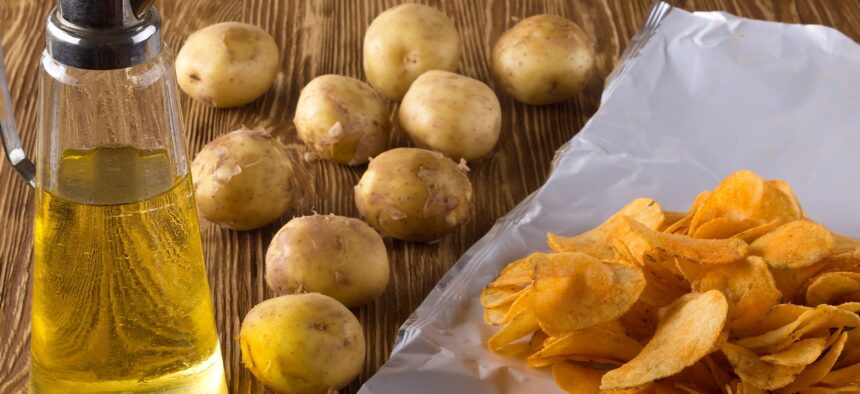As Indian consumers become increasingly health-conscious, the salty snacks market is undergoing a significant transformation. The traditional reliance on palm oil as a key ingredient in snacks is being questioned. According to a recent Mintel Report on Salty Snacks in India, 39% of consumers agree that snacks made with palm oil are unhealthy. This sentiment is particularly strong among metro dwellers, who drive the demand for palm oil-free alternatives.
PepsiCo India’s recent initiative to trial sunflower oil and palmolein as replacements for palm oil in their popular Lay’s chips is a commendable step towards aligning with consumer preferences. This move addresses health concerns and reflects a growing trend where consumers seek transparency in product ingredients. It is essential for brands to communicate these changes effectively, as Mintel’s latest consumer data indicates that 50% of metro-dwelling consumers consider snacks made with palm oil unhealthy, and 39% of palm-oil-free claim seekers are willing to pay more for such products. This clearly indicates that the palm-oil-free claim will likely gain more traction in the future.
Social media influencers are playing a pivotal role in this shift by inspiring consumers to scrutinise product labels and reduce their intake of unhealthy fats. Influencers like Revant Himatsingka, known as Food Pharmer, highlight the ubiquity of palm oil in packaged foods and urge consumers to cut down on its usage for health and environmental reasons.
Mintel Global New Products Database (GNPD) highlights that this trend is further evidenced by the increase in launch activity for palm-oil-free snacks, which has grown from a near non-existent 0.1% of launches five years ago to 2.4% of total launches in the last 12 months. Smaller brands are currently leading the way in leveraging this claim to differentiate themselves as providers of healthy snacks.
Looking ahead, the palm-oil-free claim is expected to become more prevalent in the Indian snacks market. As the focus on preventive healthcare grows, and with the prevalence of non-communicable diseases on the rise, consumers are taking steps towards healthier eating habits. This includes a growing interest in foods with healthy fats, which could drive brands to introduce more palm-oil-free options and highlight healthier oils in their products.
In terms of alternatives, rice bran and groundnut oils are leading the way as replacements for palm oil in the Indian snack space. Other oils like mustard, sunflower, and coconut oil are also considered healthier options by consumers. Brands are also seen responding by calling out the type of oil used on the front of the pack, which not only strengthens the palm-oil-free claim but also helps build consumer awareness about healthier alternatives.
As the trend continues to grow, it’s crucial for brands to educate consumers about the types and benefits of healthier oils. There is a need to build awareness, as some consumers still opt for refined oil, not realising that it is not a specific type of oil and that any oil, including palm oil, can be refined.
In conclusion, the palm-oil-free movement in India’s snacks market is gaining momentum, driven by health-conscious consumers and influencer advocacy. As awareness increases and more brands enter the space, we can expect this trend to become a significant factor in consumer purchasing decisions, with a range of healthier oil alternatives taking center stage in product formulations.
Five strategies for brands to capitalise on these trends:
- Highlight Healthier Oil Alternatives: Brands like Let’s Try and WellBe have successfully used groundnut and rice bran oils, respectively, and have communicated this on their packaging. This not only strengthens the palm-oil-free claim but also educates consumers about healthy oil options
- Target metro dwellers: Metro city dwellers are more concerned about the health impact of palm oil and are driving the demand for palm oil-free salty snacks. Brands should focus on this demographic, as 50% of metro consumers believe snacks made with palm oil are unhealthy, and 39% are willing to pay more for palm oil-free products.
- Explore Regional Preferences: Different regions in India have varying familiarity with cooking oils, which can influence consumer choice for palm oil alternatives. Understanding these preferences can help brands tailor their products to regional tastes.
- Address Pricing Concerns: While there is willingness to pay more for healthier options, the majority remains undecided. Brands need to find a balance between health benefits and cost-effectiveness to convert interest into purchase.
- Educate Consumers: There is a lack of clarity among consumers regarding healthier oil alternatives. Brands have an opportunity to build trust by educating consumers on the types and benefits of healthier oils used in place of palm oil.
To capitalise on this trend or to know more, simply drop us a note on infoasia@mintel.com.








